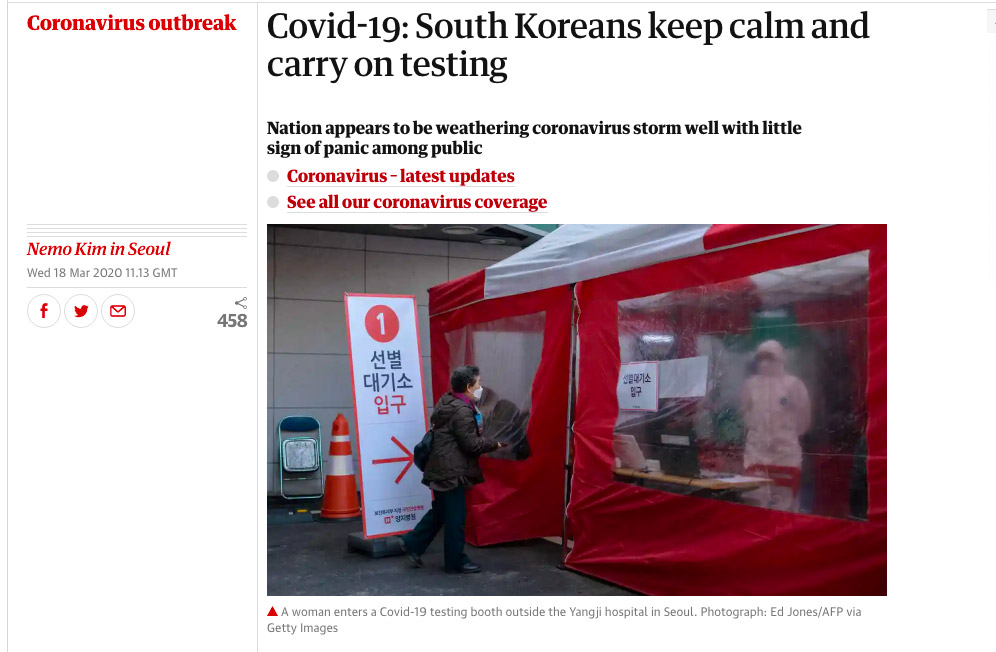Covid-19: South Koreans keep calm and carry on testing
| Fighting COVID-19 |

Covid-19 testing tents are one of the few signs of activity on Seoul’s streets these days. While the number of new confirmed cases across South Korea has stayed below 100 for three days in a row, these makeshift testing centres are spearheading efforts to contain new and worrying clusters of the virus.
In contrast to the panic-buying witnessed in other virus-hit countries, South Koreans are, for the most part, staying calm. There have been no reports of hoarding, and the only people queuing are either waiting to be tested or to buy face masks. Since South Korea confirmed its first case of the virus on 20 January, health authorities have turned to technology, testing and social distancing in an attempt to contain the outbreak. The WHO this week urged all countries to test aggressively, citing South Korea and Taiwan’s success at limiting coronavirus infections.
The Korea Centres for Disease Control and Prevention has tried to reassure a nervous public with daily briefings to explain how the virus has spread in the past 24 hours and what measures have been taken in response. It is, many people agree, a welcome show of transparency in uncertain times. The practice of sending smartphone alerts informing people of an infected person’s previous movements has sparked concerns about personal privacy, however, with the Korean human rights commission advising health authorities to withhold personal information unless it is essential to containing the virus.
South Korea has tested more than 250,000 people since the outbreak began, and has the capacity to test 15,000 people a day. It has conducted 3,692 tests per million people, compared with five per million in the US.
South Korea has also pioneered “drive-thru” tests, which allow people to be tested without leaving their vehicles – a system that also means health workers do not have to disinfect the premises after each test. One hospital in Seoul has gone a step further, developing a “walk-thru” test in which people sit inside a transparent cubicle while a medical worker collects a sample, using gloves attached to the front panel. This approach speeds up the testing process and minimises the risk to medical staff.
If a doctor suspects someone needs to be tested – if they have recently returned from China, had contact with someone known to be infected or belong to an at-risk group, for example – the procedure is done free of charge. People who do not belong to those categories but wish to be tested are charged 160,000 won (£105) and reimbursed if the result is positive, with the government footing the bill for any treatment they receive. In addition, people who are self-isolating, including those who have yet to test positive, each receive 454,900 won a month to cover basic living expenses.
– source: www.theguardian.com/world/2020/mar/18/covid-19-south-koreans-keep-calm-and-carry-on-testing?CMP=Share_AndroidApp_%EB%89%B4%EC%8A%A4%ED%94%BC%EB%93%9C